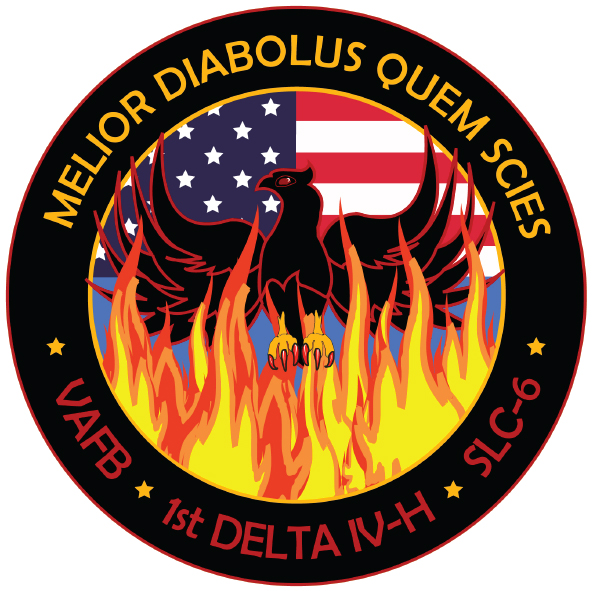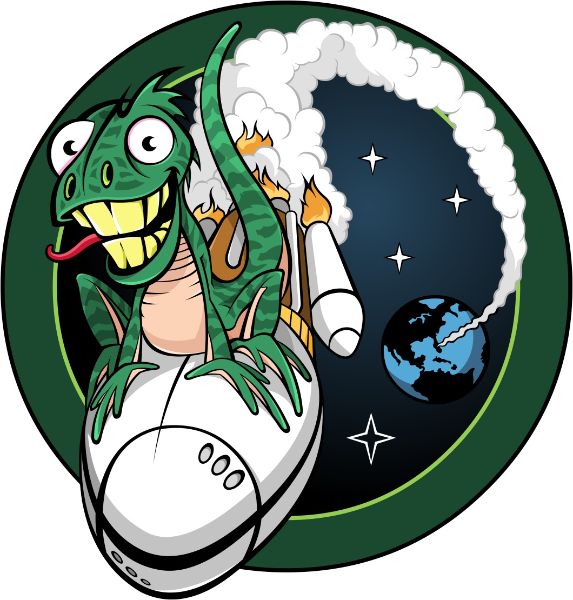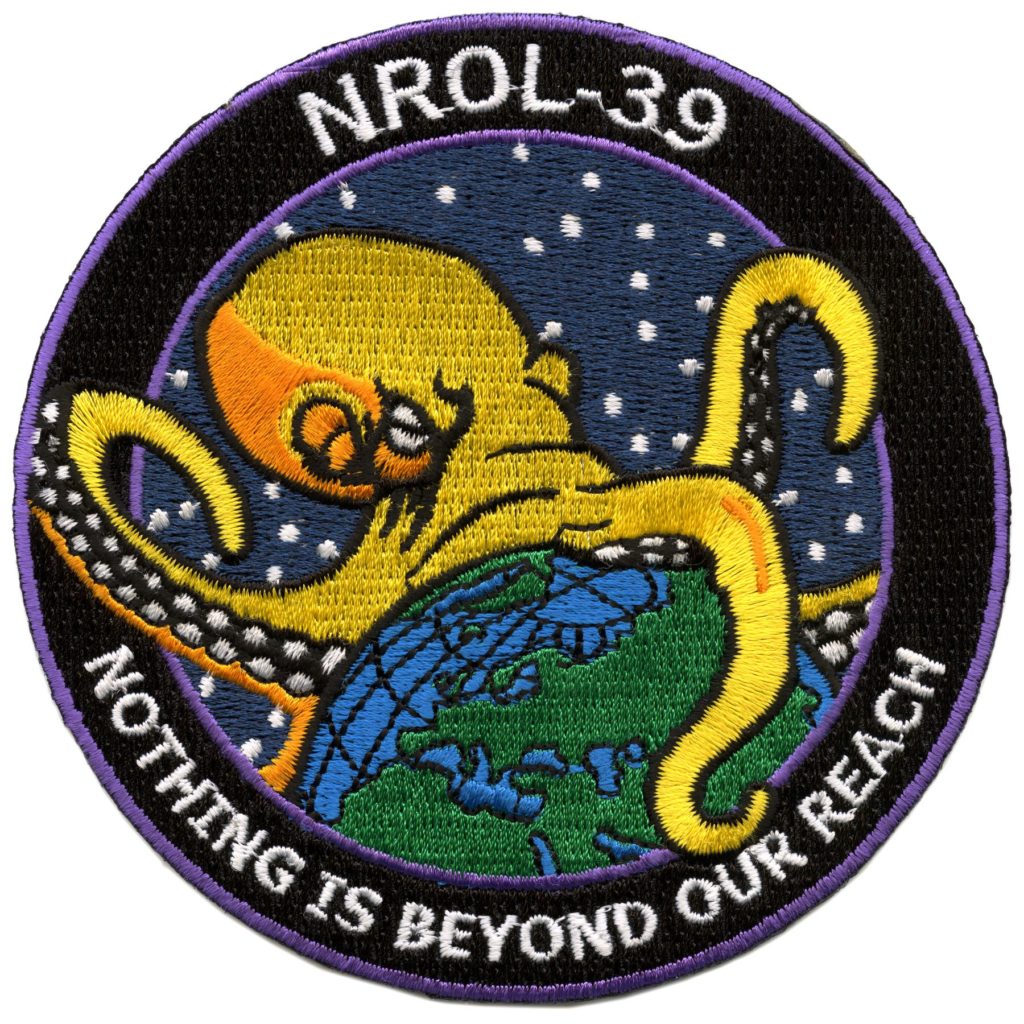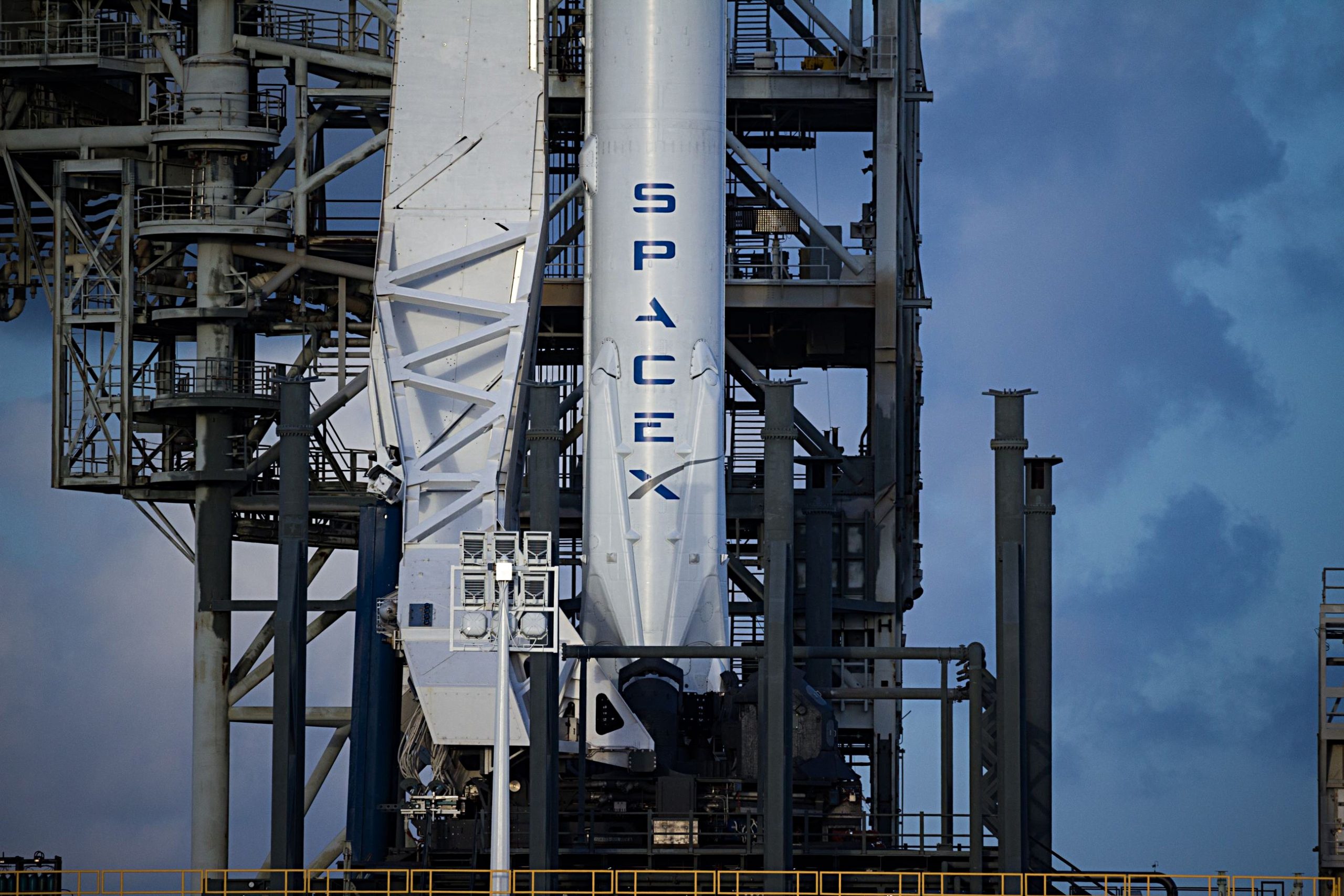
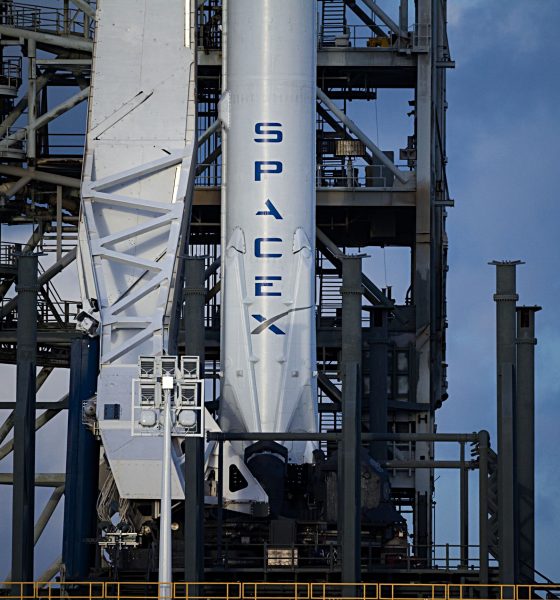
News
SpaceX to launch secret “Zuma” payload same day as Tesla Semi event
SpaceX has completed preparations and is ready to launch the highly secretive “Zuma” satellite(s) at 5pm/8pm PST/EST on Thursday, November 16th, the same day Tesla will be holding its semi-truck unveiling event.
Updated: SpaceX has rescheduled the Zuma mission.
SpaceX's highly secretive mission originally scheduled for today has been rescheduled for 8pm ET Fri., Nov. 17. On-the-ground photos from today – https://t.co/CUHuwP2lT3 pic.twitter.com/TZVBhjTOzw
— TESLARATI (@Teslarati) November 16, 2017
The Zuma launch campaign has been veiled in an extraordinary level of secrecy for SpaceX and the US launch industry in general, and this has piqued the interest of many.
In the last decade or two, the United States military apparatus has launched many dozens of satellites, and secrecy on the order of Zuma is unusual to say the least. Missions for the National Reconnaissance Office (NRO) typically feature some level of media presence and have developed a community of fans in the age of social media, taking advantage of cartoonish mission logos that can often be entertaining, if not vaguely disturbing.
Some of the more ‘unique’ NROL logos in recent years. (NRO)
However, no federal agency has yet to announce involvement in Zuma. The full extent of public information available can be found in a handful of tweets, with drastically less official info available from a leaky source on Reddit. Thus far, Northrop Grumman is known to have at least procured Zuma’s launch from SpaceX, and the same statement indirectly suggested that Zuma was in fact a government-related mission. NRO is the obvious option, with the Air Force or another branch of the US military or intelligence apparatus also a distinct possibility. It is entirely possible that the nature and parent of the mission will remain secret for the indefinite future, even after its launch.
Nevertheless, a handful of details allow us to speculate in greater detail. In May 2017, SpaceX launched NROL-76, a Department of Defense satellite that was intriguingly observed to have made very close passes to the International Space Station, far too close to have been a coincidence. Based on Notices to Airmen (NOTAMs) filed with the FAA and discussed earlier this week, it appears Zuma may be placed in an orbit very similar to that of NROL-76, suggesting that Zuma could be an iteration on NROL-76’s supposed orbit-to-orbit data gathering capabilities. This time, however, agency involvement has been completely shadowed. A blank fairing, sans any NROL-reminiscent logo, will be the tell-tale sign come tomorrow, when Teslarati’s launch photographer Tom Cross arrives at Kennedy Space Center for camera setup.
Northrop Grumman on #SpaceX Zuma launch: "This represents a cost effective approach to space access for government missions. Northrop realizes that this is monumental responsibility and has taken great care to ensure the most affordable and lowest risk scenario for Zuma."
— Robin Seemangal (@nova_road) November 13, 2017
Meanwhile, as has become shockingly routine, SpaceX’s Falcon 9 first stage, core 1043, will conduct a Return to Launch Site (RTLS), landing at LZ-1 just a few miles from its launch pad. Like NROL-76, we can expect live coverage of the second stage and payload to end immediately after stage separation; bittersweet but esoteric fans, but likely to result in a unique focus on the stage returning to Earth.
On the horizon
Possibly more exciting than the launch itself, Zuma is expected to be the last launch from SpaceX’s Kennedy Space Center LC-39A facilities until Falcon Heavy, currently aiming for an inaugural flight around December 29th. After a solid year of repairs and refurbishment, SpaceX’s LC-40 launch pad is anticipating a return to flight operations with the CRS-13 Cargo Dragon mission on December 4th. Located within the Cape Canaveral Air Force Station just a few miles south of LC-39A, LC-40 suffered widespread damage after a Falcon 9 catastrophically failed while preparing for a static fire test on the pad.
Despite the tragic loss of vehicle and the Amos-6 payload, SpaceX has maintained a strong relationship with the owner, Spacecom, and was recently chosen for both a contractual reflight in 2019 and an additional launch in 2020.
SpaceX has also made great strides since returning to flight after Amos-6 in January 2017, and has enjoyed a truly groundbreaking year of incredible progress towards the goal of rapid reusability. Quite fittingly, LC-40 is expected to return to action while hosting yet another commercial reuse of a Falcon 9 first stage, this time with the hugely significant approval of NASA. The space agency has yet to make this decision resoundingly public, but respected industry insider NASASpaceflight.com has stated that it is all but in stone at this point in time. In a sense, the disaster that severely damaged LC-40 acted as a since-heeded wake-up call for SpaceX, and the venerable pad will rise from those ashes into a new era of reusable rocketry, led wholeheartedly by SpaceX.
Be sure to follow our Instagram stories and see live action directly from the launch site at the Kennedy Space Center!

News
Tesla lands massive deal to expand charging for heavy-duty electric trucks
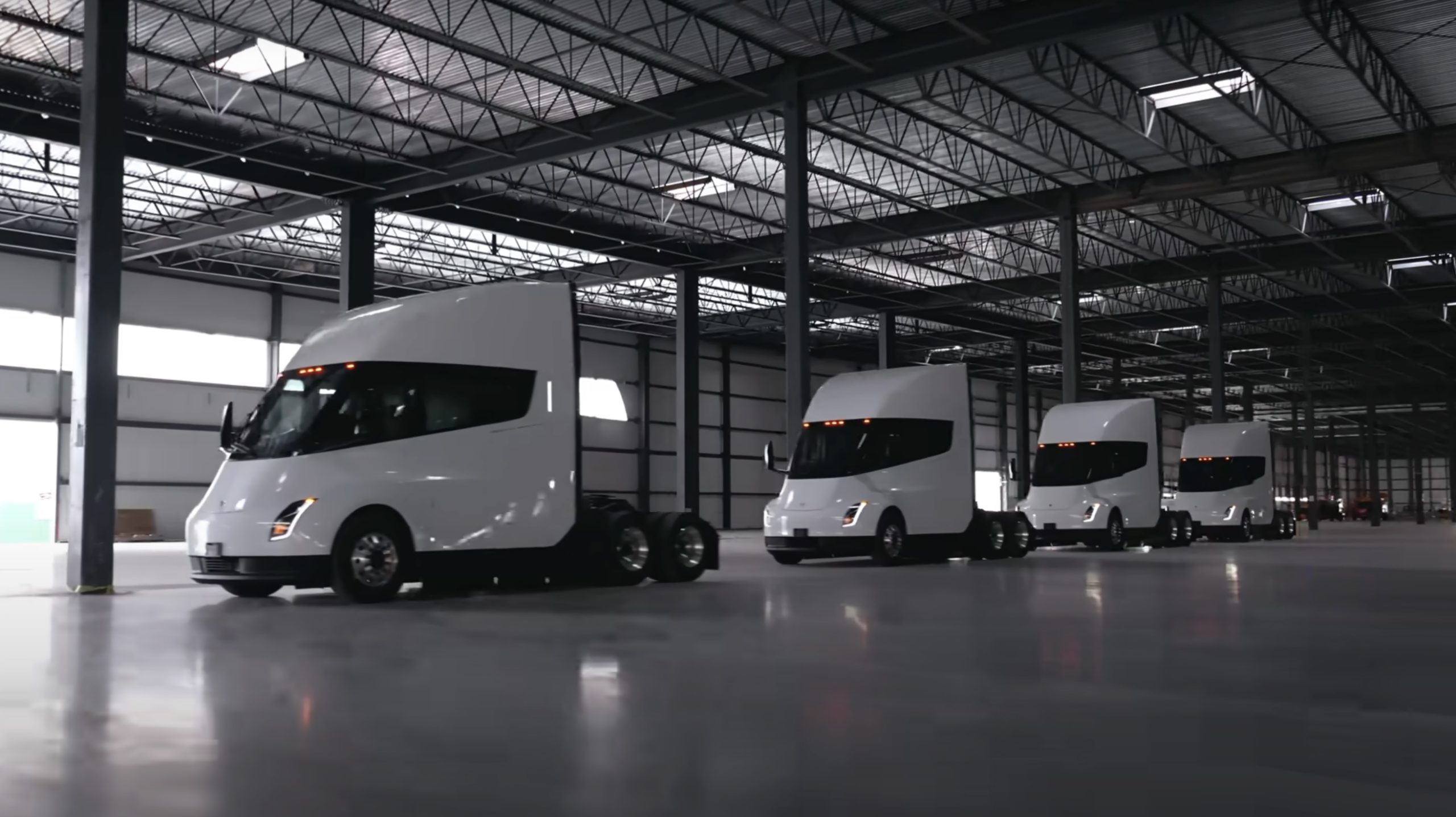
Tesla has landed a massive deal to expand its charging infrastructure for heavy-duty electric trucks — and not just theirs, but all manufacturers.
Tesla entered an agreement with Pilot Travel Centers, the largest operator of travel centers in the United States. Tesla’s Semi Chargers, which are used to charge Class 8 electric trucks, will be responsible for providing energy to various vehicles from a variety of manufacturers.
The first sites are expected to open later this Summer, and will be built at select locations along I-5 and I-10, major routes for commercial vehicles and significant logistics companies. The chargers will be available in California, Georgia, Nevada, New Mexico, and Texas.
Each station will have between four and eight chargers, delivering up to 1.2 megawatts of power at each stall.
The project is the latest in Tesla’s plans to expand Semi Charging availability. The effort is being put forth to create more opportunities for the development of sustainable logistics.
Senior Vice President of Alternative Fuels at Pilot, Shannon Sturgil, said:
“Helping to shape the future of energy is a strategic pillar in meeting the needs of our guests and the North American transportation industry. Heavy-duty charging is yet another extension of our exploration into alternative fuel offerings, and we’re happy to partner with a leader in the space that provides turnkey solutions and deploys them quickly.”
Tesla currently has 46 public Semi Charger sites in progress or planned across the United States, mostly positioned along major trucking routes and industrial areas. Perhaps the biggest bottleneck with owning an EV early on was charging availability, and that is no different with electric Class 8 trucks. They simply need an area to charge.
Tesla is spearheading the effort to expand Semicharging availability, and the latest partnership with Pilot shows the company has allies in the program.
The company plans to build 50,000 units of the Tesla Semi in the coming years, and with early adopters like PepsiCo, DHL, and others already contributing millions of miles of data, fleets are going to need reliable public charging.
🚨 Pilot working with Tesla to install and expand Semi Chargers is a perfect example of two industry leaders working together for the greater good.
As more commerce companies expand into EVs, Semi Charger will be more commonly available for electrified fleets, making efforts… pic.twitter.com/VPLIYyq15b
— TESLARATI (@Teslarati) January 27, 2026
Tesla is partnering with other companies for the development of the Semi program, most notably, a conglomeration with Uber was announced last year.
Tesla lands new partnership with Uber as Semi takes center stage
The ride-sharing platform plans to launch the Dedicated EV Fleet Accelerator Program, which it calls a “first-of-its-kind buyer’s program designed to make electric freight more affordable and accessible by addressing key adoption barriers.”
The Semi is one of several projects that will take Tesla into a completely different realm. Along with Optimus and its growing Energy division, the Semi will expand Tesla to new heights, and its prioritization of charging infrastructure.
Elon Musk
Elon Musk’s Boring Company opens Vegas Loop’s newest station
The Fontainebleau is the latest resort on the Las Vegas Strip to embrace the tunneling startup’s underground transportation system.
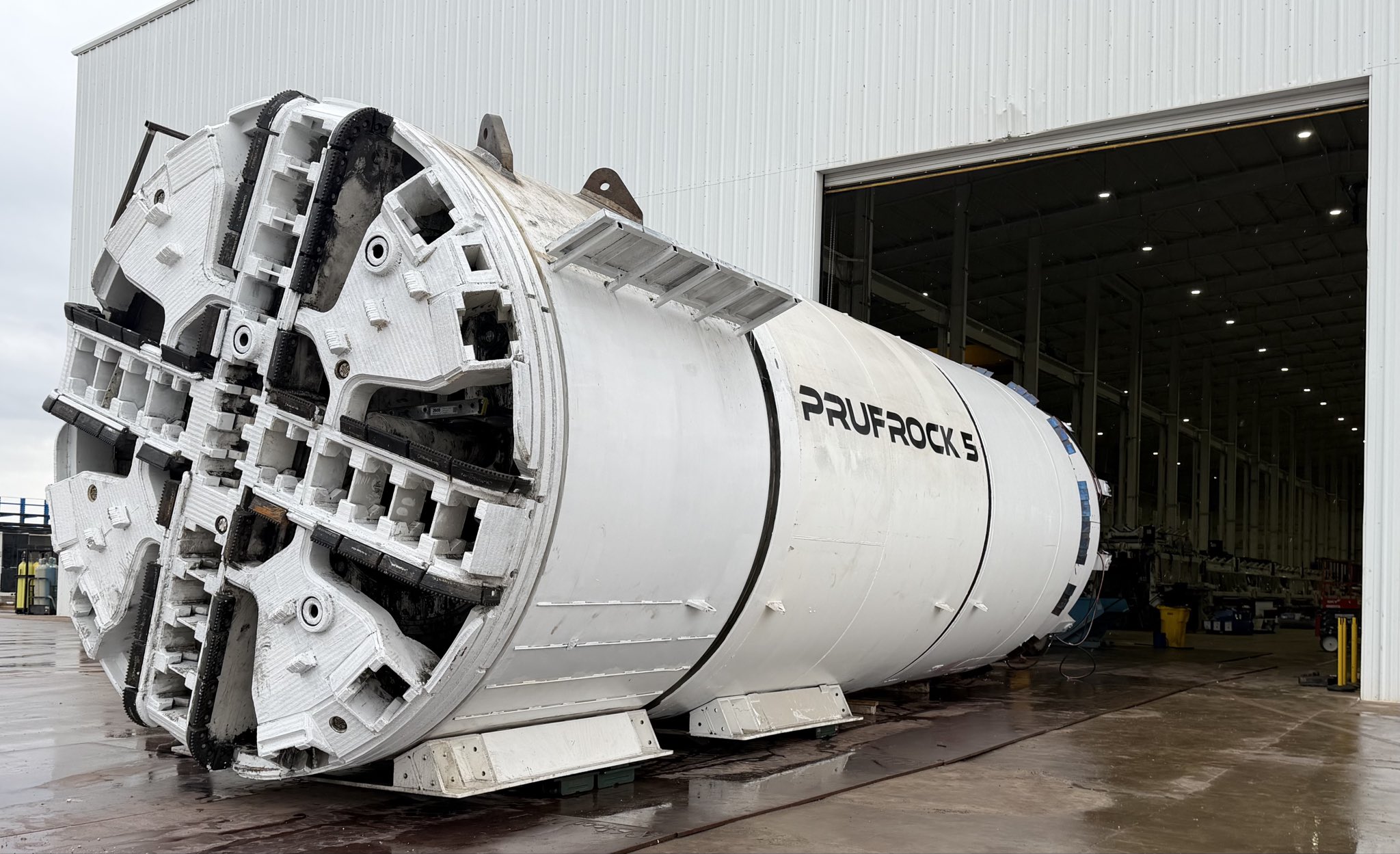
Elon Musk’s tunneling startup, The Boring Company, has welcomed its newest Vegas Loop station at the Fontainebleau Las Vegas.
The Fontainebleau is the latest resort on the Las Vegas Strip to embrace the tunneling startup’s underground transportation system.
Fontainebleau Loop station
The new Vegas Loop station is located on level V-1 of the Fontainebleau’s south valet area, as noted in a report from the Las Vegas Review-Journal. According to the resort, guests will be able to travel free of charge to the stations serving the Las Vegas Convention Center, as well as to Loop stations in Encore and Westgate.
The Fontainebleau station connects to the Riviera Station, which is located in the northwest parking lot of the convention center’s West Hall. From there, passengers will be able to access the greater Vegas Loop.
Vegas Loop expansion
In December, The Boring Company began offering Vegas Loop rides to and from Harry Reid International Airport. Those trips include a limited above-ground segment, following approval from the Nevada Transportation Authority to allow surface street travel tied to Loop operations.
Under the approval, airport rides are limited to no more than four miles of surface street travel, and each trip must include a tunnel segment. The Vegas Loop currently includes more than 10 miles of tunnels. From this number, about four miles of tunnels are operational.
The Boring Company President Steve Davis previously told the Review-Journal that the University Center Loop segment, which is currently under construction, is expected to open in the first quarter of 2026. That extension would allow Loop vehicles to travel beneath Paradise Road between the convention center and the airport, with a planned station located just north of Tropicana Avenue.
News
Tesla leases new 108k-sq ft R&D facility near Fremont Factory
The lease adds to Tesla’s presence near its primary California manufacturing hub as the company continues investing in autonomy and artificial intelligence.
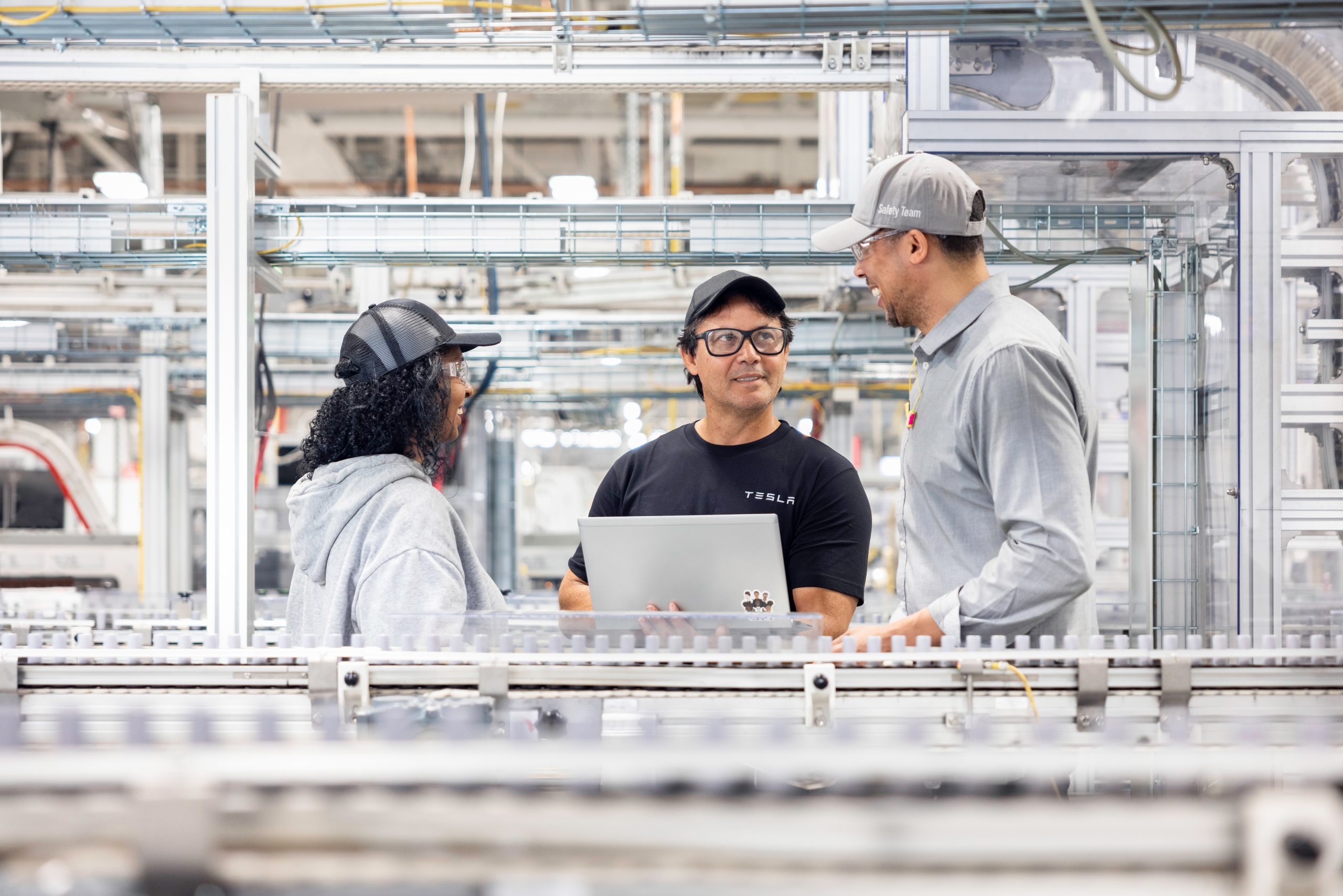
Tesla has expanded its footprint near its Fremont Factory by leasing a 108,000-square-foot R&D facility in the East Bay.
The lease adds to Tesla’s presence near its primary California manufacturing hub as the company continues investing in autonomy and artificial intelligence.
A new Fremont lease
Tesla will occupy the entire building at 45401 Research Ave. in Fremont, as per real estate services firm Colliers. The transaction stands as the second-largest R&D lease of the fourth quarter, trailing only a roughly 115,000-square-foot transaction by Figure AI in San Jose.
As noted in a Silicon Valley Business Journal report, Tesla’s new Fremont lease was completed with landlord Lincoln Property Co., which owns the facility. Colliers stated that Tesla’s Fremont expansion reflects continued demand from established technology companies that are seeking space for engineering, testing, and specialized manufacturing.
Tesla has not disclosed which of its business units will be occupying the building, though Colliers has described the property as suitable for office and R&D functions. Tesla has not issued a comment about its new Fremont lease as of writing.
AI investments
Silicon Valley remains a key region for automakers as vehicles increasingly rely on software, artificial intelligence, and advanced electronics. Erin Keating, senior director of economics and industry insights at Cox Automotive, has stated that Tesla is among the most aggressive auto companies when it comes to software-driven vehicle development.
Other automakers have also expanded their presence in the area. Rivian operates an autonomy and core technology hub in Palo Alto, while GM maintains an AI center of excellence in Mountain View. Toyota is also relocating its software and autonomy unit to a newly upgraded property in Santa Clara.
Despite these expansions, Colliers has noted that Silicon Valley posted nearly 444,000 square feet of net occupancy losses in Q4 2025, pushing overall vacancy to 11.2%.
